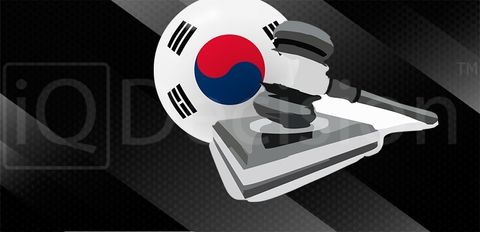Unless it’s a patent dispute which can only be handled by the Patent Court, resolving commercial disputes in the Republic of Korea (ROK) is normally handled by ordinary civil courts. Decisions rendered by courts of the 1st instance may be appealed with the High Court. In their turn, decisions of the High Court may be appealed with the Supreme Court. Only the Supreme Court can review decisions of the High Court pertaining to resolution of IP disputes in the Republic of Korea.
Jury & Adjudicators
South Korean adjudicators are the only ones who can establish facts & interpret laws. Hence it follows that a trial by jury in the Republic of Korea is non-existent; all decisions are rendered by judges.
South Korea: Filing Civil Claims
Those seeking to initiate litigation in the Republic of Korea should keep in mind that an overwhelming number of civil claims have a statute of limitations of ten years. Some disputes related to contractual disagreements may have a shortened statute of limitations.
For instance, a statute of limitations for filing a claim in a contractual dispute in the Republic of Korea would be 5 years & begin immediately after a claim is filed.
A statute of limitations cannot be abolished in advance by way of negotiation. Civil action suits are initiated after a claim is filed with courts of relevant jurisdiction by a plaintiff. It is to specify the nature of a claim & have all the necessary documents attached to it. After that, a copy of the claim is sent to a defendant (normally, within seven to fourteen days).
Remedies
Those seeking to resolve a commercial dispute in the Republic of Korea should keep in mind that they can take advantage of preliminary injunctions which are available as interim measures. Injunctions can be imposed when plaintiffs cannot exercise their rights or face serious problems with exercising their rights. Interim measures like these are also available for foreign proceedings.
When resolving business disputes in the Republic of Korea, courts may order particular remedies, payment of funds included. Punitive damages aren’t permitted, unless the 2018 PL Act providing for punitive damages is cited by a court.
Public Access
The general public is allowed to attend court hearings. Decisions rendered by courts can be accessed by visiting the Supreme Court site. Unpublished court decisions can also be accessed by going to court.
Cost
When making decisions, South Korean courts include court fees. Stamp duty is paid by parties filing a lawsuit (counterclaims included) & an appeal. If plaintiffs aren’t physically present in the Republic of Korea, defendants can get them to pay legal fees.
ROK: Filing a Class Action Suit & Insurance
Those planning to initiate commercial disputes in the Republic of Korea should keep in mind insurance policies that cover expenses associated with civil claims. Just how much is covered will depend on the conditions & terms of a specific insurance policy. It’s only possible to file a class action suit in the Republic of Korea for claims of particular types.
Appealing a Court Decision in the Republic of Korea
Decisions delivered by 1st instance courts may be appealed with 2nd instance courts. Appeals filed against decisions delivered by the Court of Appeal are handled by the Supreme Court.
Foreign Awards
Enforcing & recognizing foreign awards is possible if:
- they’re final;
- foreign courts’ jurisdiction is recognized in the Republic of Korea;
- a defendant was timely informed of summons & claims & had ample time to prepare their defense;
- decisions rendered by courts in the Republic of Korea are enforced & recognized by foreign courts & vice versa.
- cooperation between South Korean & foreign courts is provided for in South Korean legislation.
Initiating Arbitration in the Republic of Korea
The Arbitration Law, which is the main piece of legislation regulating arbitration in the Republic of Korea, provides for establishment of arbitral tribunals if no applicable rules or agreement are available. If no agreement is reached regarding arbitrators, 3 arbitrators are selected by default.
The KCAB, South Korea’s number one arbitration institution, is charged with keeping a roster of arbitrators from the Republic of Korea & abroad.
ROK: Appealing Arbitral Awards
Those seeking to settle a dispute through arbitration in the Republic of Korea should keep in mind that only courts can reverse arbitral awards.
ADR in the Republic of Korea
Resolving a commercial dispute in the Republic of Korea is possible by filing a civil lawsuit with a court. Resolving disputes by arbitration in the Republic of Korea is also possible & used for peaceful settlement of disputes in the Republic of Korea. Courts can also recommend that parties consider an option of pre-trial resolution of business disputes in South Korea before going to court.
Planning to initiate arbitration proceedings in South Korea? Why not consider contacting IQ Decision UK? Our experts will be happy to give you a hand with settlement of international business disputes, resolving disputes by mediation in South Korea & many more.

















